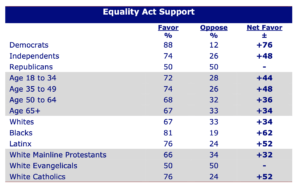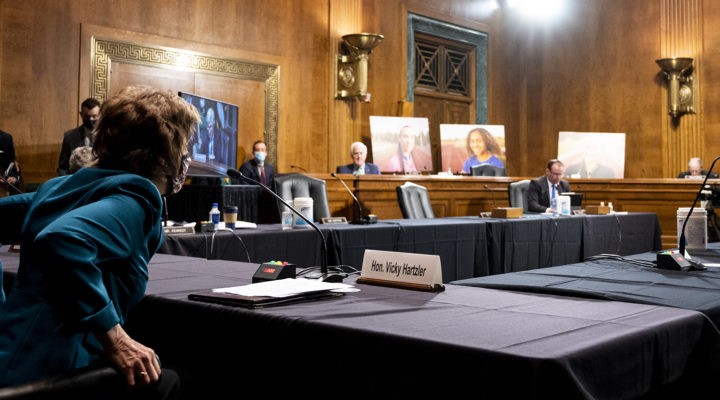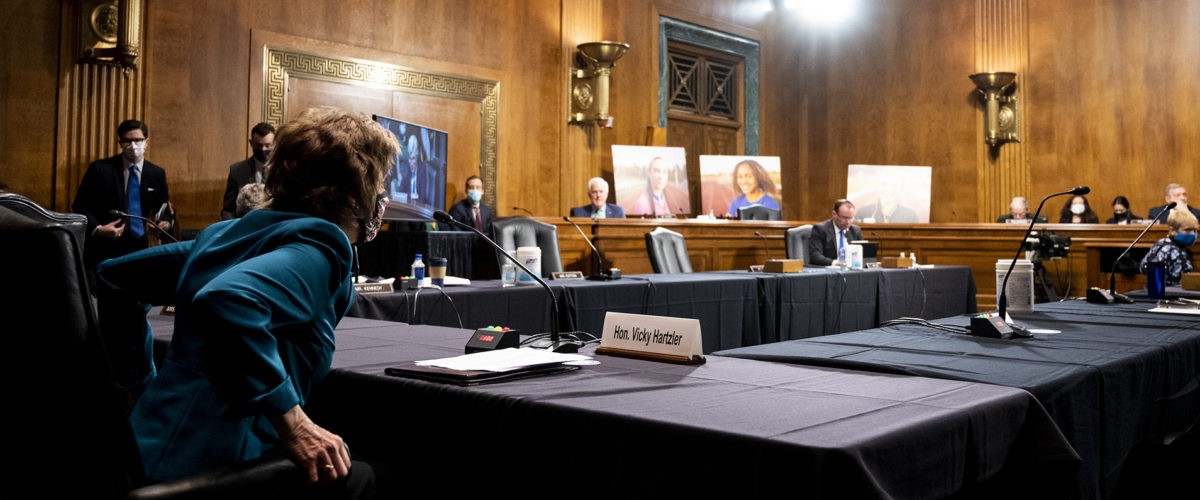As the United States Senate held its first hearing for the proposed Equality Act March 17, a group of Black Christian leaders threw their support behind a competing piece of legislation known as the Fairness for All Act.
The Equality Act — which would amend the Civil Rights Act of 1964 to add specific protections for “sexual orientation” and “gender identity” — passed the House of Representatives Feb. 25. It faces an uphill battle in the Senate, however, because most of the chamber’s 50 Republicans oppose it and under current rules it takes 60 votes to pass a bill.
To some who oppose the Equality Act, the Fairness for All Act is seen as a compromise piece of legislation. Yet to some religious conservatives, including the Southern Baptist Convention’s Ethics and Religious Liberty Commission, the Fairness for All Act still goes too far in providing protections against discrimination on the basis of sexual orientation or gender identity.
To some who oppose the Equality Act, the Fairness for All Act is seen as a compromise piece of legislation.
Democrats and LGTBQ advocates, on the other hand, express doubts about the Fairness for All Act as not being, in fact, fair for all.
The Fairness for All Act would make it illegal for an employer to fire someone based on sexual orientation or gender identity, and it would provide similar protections against housing discrimination. But it would create specific carve-outs for churches and faith-based organizations that believe discrimination is required by their beliefs.
For example, the bill would prohibit government from disallowing faith-based organizations from receiving federal funds for adoption placement services and educational opportunities — even though those religious institutions might decline to serve gay people, same-sex couples or transgender persons.
On March 16, a letter from 57 Black Christian leaders, mainly clergy, was sent to Senate Judiciary Committee leadership expressing support for LGBTQ anti-discrimination measures but not for the Equality Act. The letter was organized by the AND Campaign, a Christian advocacy group. Among its signers is Charlie Dates, pastor of Progressive Baptist Church in Chicago, who recently left the SBC over its denial of systemic racism and Critical Race Theory.
“We are writing to express our support and appreciation for the efforts to more fully provide the LGBT community with civil and human rights protections,” it begins. “For far too long, this community has endured mistreatment in American society, including within parts of the church. We regret and lament our collective misdeeds and omissions in that regard.”
“For far too long, this community has endured mistreatment in American society, including within parts of the church.”
The clergy attempt to balance their belief in “the historic Christian sexual ethic” with their belief that all people should have protection against workplace and housing discrimination.
They declare the Equality Act to be “a danger” to Christian institutions as well as Jewish, Sikh, Buddhist and Muslim organizations.
“We can defend the rights of the LGBT community without threatening religious communities,” the letter states. It charges that the Equality Act would endanger “many of the basic rights that allow religious organizations to operate according to the tenets of their faith. It would allow LGBT rights to be used as a sword against faith institutions rather than a shield to protect the vulnerable.”
And it is just such attacks on the Equality Act that point to the perils of creating religious carve-outs either direction, according to previous statements by Amanda Tyler, executive director of Baptist Joint Committee for Religious Liberty.
Specifically addressing the Equality Act, she recently tweeted support for the existing Religious Freedom Restoration Act instead: “The strength of RFRA is its universal application to all federal laws. It was designed as a balancing test to be applied on a case-by-case basis. Selectively applying the standard chips away at broad support for religious freedom.”
Both the Equality Act and the Fairness for All Act would include specific language regarding faith-based organizations that would override the general protections of RFRA.
“The Equality Act needlessly pits the concerns of diverse communities against each other.”
The clergy letter advocating against the Equality Act said: “Black and brown Christians worked too hard for the Civil Rights Act to have it revised in ways that would take away basic rights and funding from our communities. The Equality Act needlessly pits the concerns of diverse communities against each other.”
If there is middle group to be found between liberals and conservatives on the issue of LGBTQ rights, it has not yet become obvious to legislators. Yet the polling data continues to show more widespread acceptance of full LGBTQ rights among the American public.
 On the same day the Black clergy sent their letter to senators, the Human Rights Campaign — a racially diverse pro-Equality Act group — released new national polling data showing strong support for the Equality Act. The survey, conducted by Hart Research Associates, found 70% of U.S. voters favor the Equality Act after reading a summary of its language.
On the same day the Black clergy sent their letter to senators, the Human Rights Campaign — a racially diverse pro-Equality Act group — released new national polling data showing strong support for the Equality Act. The survey, conducted by Hart Research Associates, found 70% of U.S. voters favor the Equality Act after reading a summary of its language.
Strong support was found among all demographic and partisan groups, with the exception of Republican voters and white evangelical Christians. Still, half of respondents in those two subgroups said they favor the Equality Act. Black respondents said they favor the Equality Act by 81% for and 19% against — a 62-point spread.
The Senate Judiciary Committee hearing March 17 exposed the depth of the chasm between Democrats and Republicans in Congress over the Equality Act, however. Much of that dialogue centered on transgender identity.
Multiple media analysts described 16-year-old Stella Keating as the star witness of the hearing. The Washington state teenager told about her own practical concerns about the uneven patchwork of laws protecting — or not protecting — transgender persons state by state.
“What happens if I want to attend a college in a state that doesn’t protect me?” she asked. “Right now, I could be denied medical care or be evicted for simply being transgender in many states. How is that even right? How is that even American? What if I’m offered a dream job in a state where I can be discriminated against? Even if my employer is supportive, I still have to live somewhere. I have to eat in restaurants, and I have to have a doctor. And why am I having to worry about all of this at the age of 16?”
Republican critics of the act sounded alarms about the perceived threat of transgender girls in sports.
Sen. John Kennedy (R-La.) talked about body parts and the threat he sees in transgender persons.
Sen. Charles Grassley (R-Iowa) described transgender girls in high school athletics as “biological men.” Abigail Shrier, a witness in the hearing, depicted transgender girls as threats to the safety of other girls and women.
Sen. John Kennedy (R-La.) talked about body parts and the threat he sees in transgender persons.
“Would this bill prohibit the boy with gender dysphoria from exposing his penis to the girls?” Kennedy asked Shrier at one point. “Would this bill prohibit the girls from exposing their genitalia to the boy that identifies as a girl?” he asked later.
Across the nation, Republican state legislators this year are advocating anti-transgender bills, often related to school sports and medical care.
Related articles:
Equality Act stirs passions about the definition of religious liberty and RFRA’s role
Anti-transgender bills introduced in more than a dozen state legislatures
Does landmark religious freedom legislation need a fix or is it fine as is?


